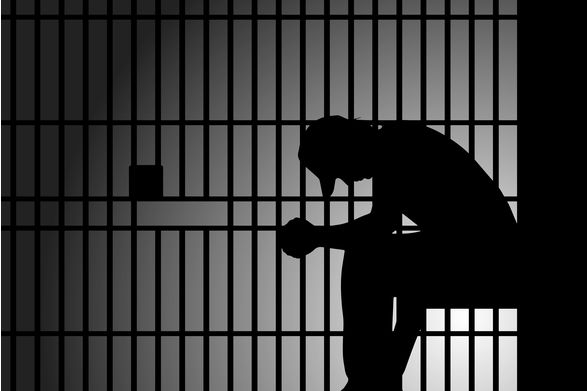When President Donald Trump signed the First Step Act into law last December, he righted some injustices for thousands of federal inmates and took an important step forward in criminal justice reform. Six months later, President Trump is proving in new ways that he is fighting so all Americans have access to opportunity — including those locked out because of their criminal records.
Yesterday, President Trump announced that the White House is advancing second chance hiring to help returning citizens transition to society successfully by making it more likely that they will find jobs.
The black community, which has been disproportionately affected by incarceration, will gain tremendously from this Administration’s commitment to fixing broken areas in our justice system and expanding opportunity.
Black adults are six times as likely to be incarcerated as white adults. Although there were more than twice as many white females (49,000 prisoners) as black females (20,400) in state and federal prison at year-end 2016, the imprisonment rate for black females is almost double that for white females.
Following the passage of the First Step Act, blacks comprised over 90 percent of prisoners whose sentences were reduced because of resentencing provisions.
In the labor force, Black Americans have finally been thriving and closing racial gaps in unemployment. The black unemployment rate fell to its lowest level in recorded history last year and currently hovers near historic lows. The gap between unemployment rates for whites and blacks has fallen from as high as 13 percentage points in June 1983 to three percentage points this May. The black unemployment rate is ripe to fall even further as returning citizens get a second chance in our workforce.
When the economy is booming and creating millions of jobs, employers will start to consider applicants that they previously would have bypassed such as those with criminal records. This shift in perceptions among employers is critical to the success of returning citizens. Being released early from federal prison can become a short-lived victory if former inmates lack opportunities to work and end up returning to prison.
Preventing recidivism begins with a job. As with regular workers, employment for returning citizens is important to support themselves and loved ones, to pursue life goals, and help their communities.
Former inmates want to work. However, their unemployment rate was nearly five times higher (at 27 percent) than the general U.S. unemployment rate last year. The unemployment rate for former black female inmates was as high as 44 percent.
The Trump administration aims to cut the unemployment rate for returning citizens to single digits within five years. Therefore, there’s an all-hands-on-deck effort across federal agencies, the private sector, states, and criminal justice reform organizations to help former inmates find opportunities and succeed in their jobs.
For example, the Department of Justice and Bureau of Prisons are launching an initiative to connect returning citizens with employers looking to hire them. The Department of Labor will give states $2 million for bonds that underwrite companies which hire workers with criminal backgrounds. Even federal jobs will no longer effectively be off limits as the Office of Personnel Management will make job listings on USAJOBS available to those in and released from prison.
A job is just part of the formula to reduce recidivism. Housing and transportation also play roles, and it seems that the administration is employing public and private solutions to give returning citizens the support they need to bounce back.
One of the biggest obstacles to working for former inmates is securing a license to practice a vocation or trade in their home state. Thankfully, occupational licensing reform effort across many states is underway to reduce or eliminate the onerous and costly requirements or scale back prohibitions for those with criminal backgrounds.
Kim Kardashian was at the White House yesterday for the president’s announcement. This reality-TV star-turned law student said something memorable about why these efforts are important for everyone in society: “Everyone wants the community to be safe, and the more opportunity … they have and the support that we help give them, the safer everyone will be.”
Returning citizens can soon transition from the first step of release to the next steps in their lives more easily. For that, President Trump should be commended.


